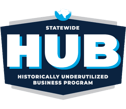This week at the ASHRM (American Society for Healthcare Risk Management) 2023 Conference, we learned that the Joint Commission is conducting mock surveys around hazardous drugs to prepare hospitals and healthcare systems for upcoming accreditation surveys.
As you’ve been preparing for the November 1st enforcement date, have you participated in a Joint Commission mock survey? If not, here’s what to expect.
A mock survey is a close simulation of what to expect from an actual Joint Commission inspection, where a team of Joint Commission surveyors investigates a healthcare organization’s policies, procedures, and operational processes regarding hazardous drugs safe handling and disposal, in this case. To get the most out of the time-intensive exercise, take these steps:
- Gather stakeholders: pharmacy, the designated person, nursing and clinician leadership, hospital risk management personnel, and anyone closely involved with USP should be included in the planning and the execution.
- Evaluate how your organization stacks up against the Joint Commission’s standards and USP <800> requirements. Before beginning the arduous process of the mock survey, evaluate your organization’s strengths and where it may fall short. Take steps to improve any areas necessary. By conducting an initial evaluation and making some adjustments, your team will enter the mock survey ready to look at the nooks and crannies of your organization’s USP <800> compliance progress.
- Prepare documentation as you would for the Joint Commission, which for Hazardous Drugs would include Medication management policy, Final Reports of Certification/Testing for all Primary Engineering Controls and Secondary Engineering Controls associated with Sterile Medication Compounding, the most recent culture of safety and quality evaluation data, hazardous drug communications plan and others, as listed in the “Hospital Accreditation Survey Activity Guide: January 2023” by the Joint Commission.
- Organize a mock tracer, which constitutes about 60% of the overall survey according to “How to Conduct a Mock Tracer” by the Joint Commission. The mock tracer consists of Joint Commission surveyors observing patient care, treatment or associated services. A tracer will also take a broader look at the system's processes, focusing on three areas: medication management, infection control, and data management. Your organization should recruit staff experienced in these surveys to play the role of the Joint Commission surveyors. The mock tracer should evaluate the effectiveness of an organization’s policies and procedures, engage staff in looking for opportunities to improve processes and provide certainty that the organization has addressed compliance issues and is ready for survey at any time.
Once you have conducted your mock survey, a de-brief meeting amongst participants and hospital stakeholders is imperative to discuss and document what went right and where gaps in hazardous drug safe handling and disposal policies and practices still exist.
The Rpharmy team has worked with many hospitals just like yours, from small independent facilities to multi-facility systems covering a range of care. Our library of Safety First blogs provides a variety of information to help as you prepare for a Joint Commission survey around USP <800>. We’re here to help as you do the important work of protecting healthcare workers from the dangerous effects of exposure to hazardous drugs.


